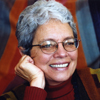COMMUNITY VOICE: Women Who Light the Dark

COMMUNITY VOICE: Women Who Light the Dark
Indian Women Train African Women to be Solar Engineers
If a village has no electricity, women walk to the nearest market to buy kerosene, then make lamps using old bottles and wicks. Children get lung diseases studying by such lamps; midwives can't see by the dim light to deliver babies at night; heating and cooking are accomplished using fire.
For years, the Barefoot College has been training rural women who live in the Himalayas to be solar engineers. Now, some of those Indian women, having electrified their own villages, are returning to the college to teach African women the same skills.
Because most Barefoot College students can't read manuals and use no common language, teaching is done by demonstration and signing.
At first the school trained men, but men often left their villages to seek jobs in the city with their new technical knowledge. Women solar engineers stayed in the villages with their children; it is they who transform village life--who literally light the dark.
Students are elected by their villages where each family contracts to pay a monthly charge (one third of the amount previously paid for kerosene) to fund the installation and maintenance of solar electricity.
Since 2004, the Barefoot College has trained women from remote villages in Benin, Bolivia, Cameroon, Malawi, Rwanda, Sierra Leone, and Sudan, among other countries. The College receives funding from diverse organizations; for example, the solar equipment itself is funded by the United Nations Development Program, and in 2007 and 2008, the airfare and six-month training fees for women coming from nearly 15 African countries was paid for by a division of India's Ministry of External Affairs.
See Sumithra Prasanna's photos and essay for Economica about her experience filming a documentary about the Barefoot College.
To learn more about Paola's work, visit www.womenwholightthedark.com.
To learn more about the Barefoot College, visit www.barefootcollege.org.


